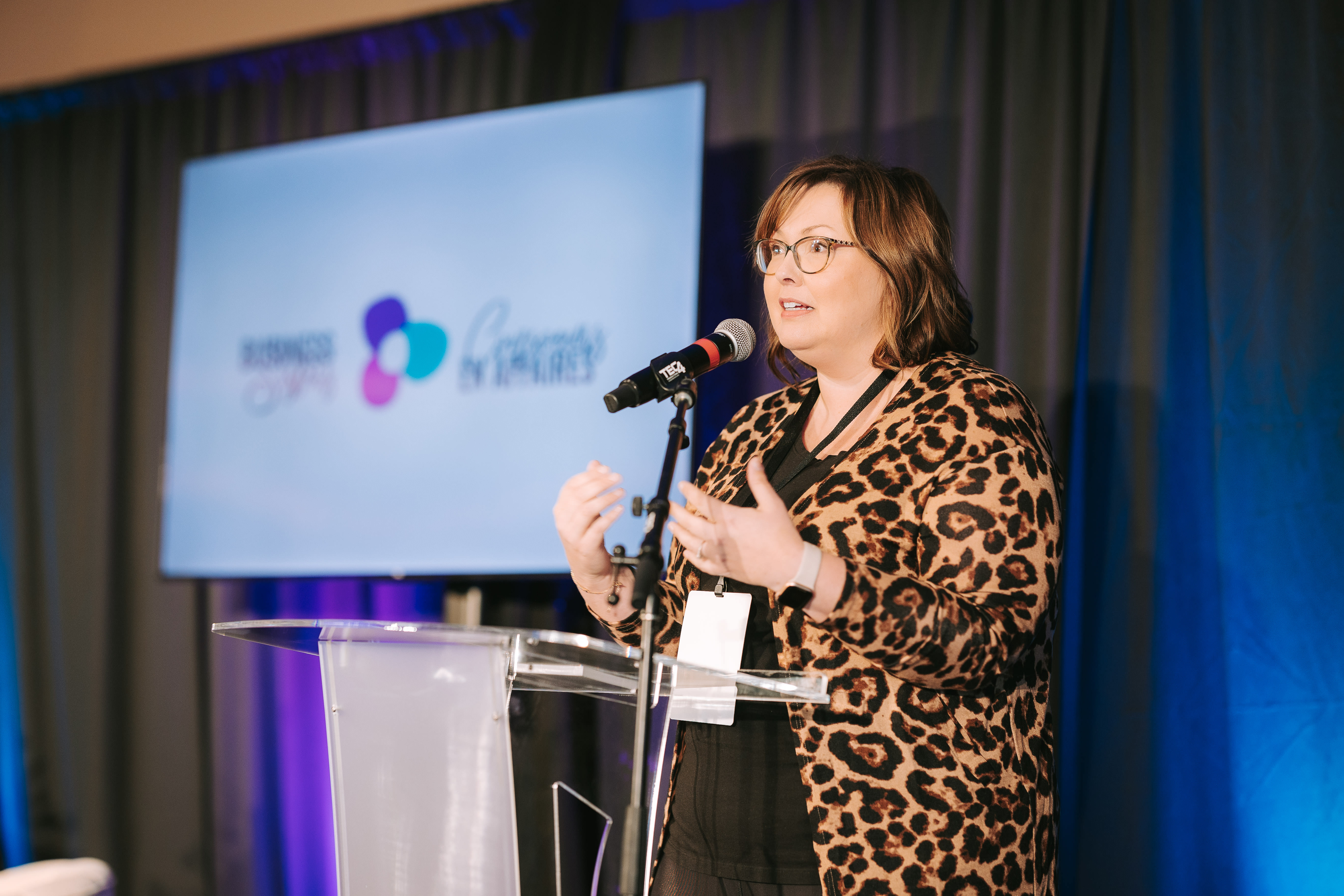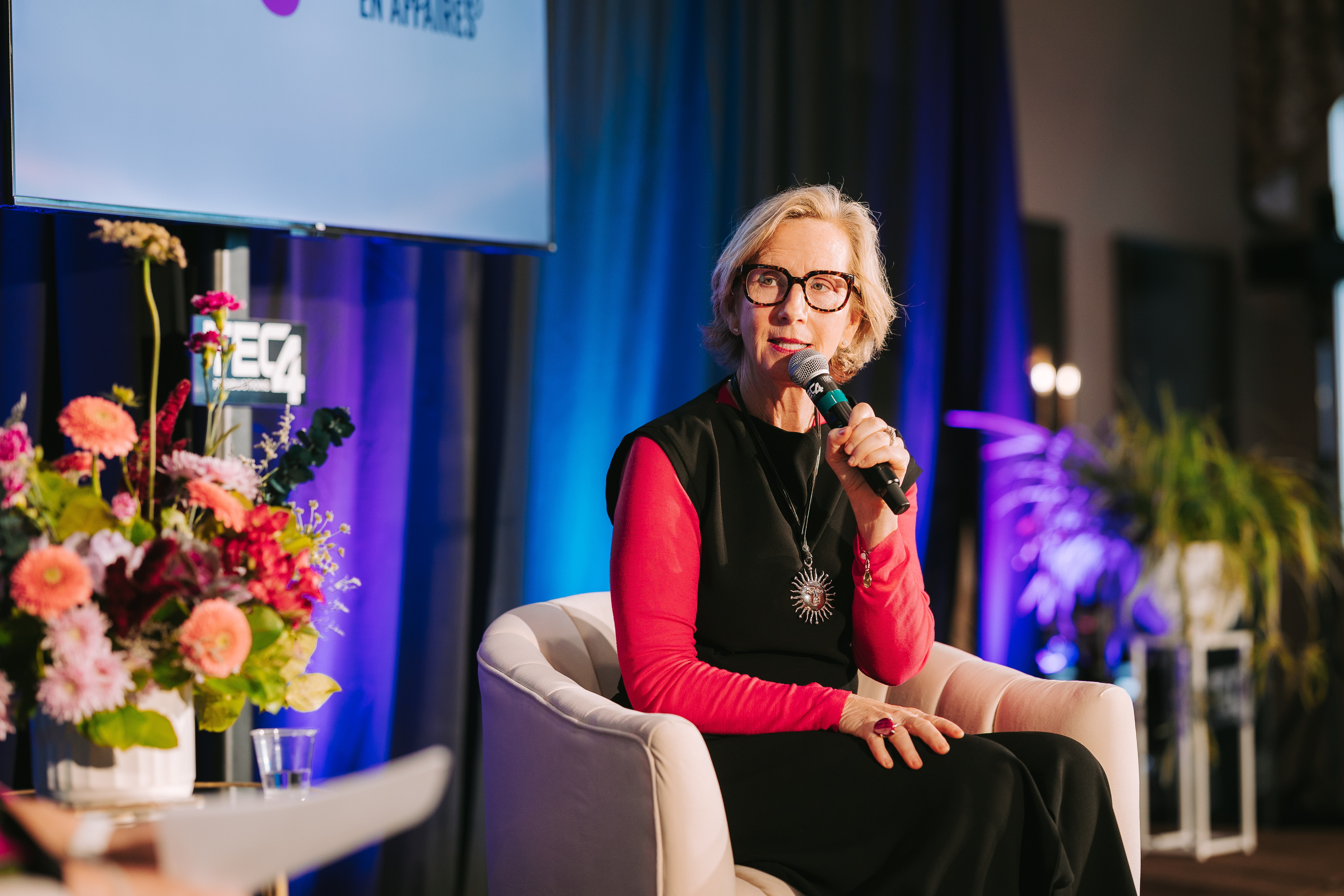By using this website, you agree to cookies being stored on your device in order to improve site navigation, analyse site usage and contribute to our marketing efforts. See our privacy policy for more information.
A Mom to my Business Family

As women, we often run our businesses like we run our families: like moms. We’re not just the Chief Executive Officer—we’re also the Chief Emotional Officer.
Greenfield Services was a business I co-founded with my husband, but it was my idea. The culture had my stamp all over it. We were family-focused, employing many moms who were returning to work or needed flexibility for things like a sick child at home. We even had a paid-time-off bank for exactly those situations.
With that mindset, I became the business mom.
When one employee’s marriage was falling apart, I was there for her. I lent money to a few who were struggling to make ends meet. When one woman’s daughter was battling addiction, I offered flextime and support. I was proud of our compassionate, family-first culture. Our business made space for love.
But leading with love has a downside. Sometimes, love blinded me to reality.
I didn’t want to believe someone on our team was stealing from the chocolate bar box in the kitchen—but they were. I was stunned when a former employee sued us for wrongful dismissal... even though he had quit. And when I confronted a supervisor about a romantic relationship with another staff member, I was crushed to learn she’d been lying to my face.
This over-compassionate streak extended to clients too. Jim—an American direct marketing guy—once accounted for 60% of our revenue. He treated me like his personal therapist, unloading everything from his daughter’s boyfriend drama to complaints about his clients. I didn’t push back, afraid I’d lose the business.
Then there were the big corporations that took 90+ days to pay us. But hey, at least they weren’t as emotionally exhausting as Jim, so I let it slide.
Looking back, mixing love and business bit me in the butt more than once.
Am I sorry I led the way I did? Not anymore. I burned out, learned my lessons, and eventually sold the business. I've had time to reflect. If I were in the same position today, here’s what I’d do differently—and what I’d still stand by.
Compassion with Boundaries: Leading with Heart and Boundaries
With Employees:
- Set emotional boundaries early. Don’t play therapist. Offer empathy, but refer employees to trained professionals when personal issues arise. Compassion doesn’t mean taking on their emotional weight.
- Put policies in writing. Clear contracts and employee handbooks set expectations and protect everyone. Documented boundaries are your best defense against drama, confusion, or litigation.
- Create a feedback loop. Regular check-ins (not just performance reviews) help address small issues before they become big ones. Use them to reinforce shared values and accountability.
With Clients:
- Define the relationship. Be clear about what you’re offering—and what you’re not. You’re a service provider, not a therapist, mediator, or life coach.
- Stick to payment terms. Add penalties or incentives if needed. Kindness doesn’t mean waiting 90 days to get paid.
- Know when to walk away. If a client consistently disrespects your boundaries or drains your energy, it’s time to move on. You can’t afford to carry toxic relationships—financially or emotionally.
As a woman entrepreneur, I’ll always believe in love and compassion as guiding principles. But that doesn’t mean I’m willing to be a doormat. Keeping people accountable—whether it’s employees, clients, or partners—is just as important as being kind.
The same goes for raising kids, managing a family, or running a business: love without respect and boundaries isn’t sustainable. And it sure as hell isn’t leadership.
As women, we often run our businesses like we run our families: like moms. We’re not just the Chief Executive Officer—we’re also the Chief Emotional Officer.
Greenfield Services was a business I co-founded with my husband, but it was my idea. The culture had my stamp all over it. We were family-focused, employing many moms who were returning to work or needed flexibility for things like a sick child at home. We even had a paid-time-off bank for exactly those situations.
With that mindset, I became the business mom.
When one employee’s marriage was falling apart, I was there for her. I lent money to a few who were struggling to make ends meet. When one woman’s daughter was battling addiction, I offered flextime and support. I was proud of our compassionate, family-first culture. Our business made space for love.
But leading with love has a downside. Sometimes, love blinded me to reality.
I didn’t want to believe someone on our team was stealing from the chocolate bar box in the kitchen—but they were. I was stunned when a former employee sued us for wrongful dismissal... even though he had quit. And when I confronted a supervisor about a romantic relationship with another staff member, I was crushed to learn she’d been lying to my face.
This over-compassionate streak extended to clients too. Jim—an American direct marketing guy—once accounted for 60% of our revenue. He treated me like his personal therapist, unloading everything from his daughter’s boyfriend drama to complaints about his clients. I didn’t push back, afraid I’d lose the business.
Then there were the big corporations that took 90+ days to pay us. But hey, at least they weren’t as emotionally exhausting as Jim, so I let it slide.
Looking back, mixing love and business bit me in the butt more than once.
Am I sorry I led the way I did? Not anymore. I burned out, learned my lessons, and eventually sold the business. I've had time to reflect. If I were in the same position today, here’s what I’d do differently—and what I’d still stand by.
Compassion with Boundaries: Leading with Heart and Boundaries
With Employees:
- Set emotional boundaries early. Don’t play therapist. Offer empathy, but refer employees to trained professionals when personal issues arise. Compassion doesn’t mean taking on their emotional weight.
- Put policies in writing. Clear contracts and employee handbooks set expectations and protect everyone. Documented boundaries are your best defense against drama, confusion, or litigation.
- Create a feedback loop. Regular check-ins (not just performance reviews) help address small issues before they become big ones. Use them to reinforce shared values and accountability.
With Clients:
- Define the relationship. Be clear about what you’re offering—and what you’re not. You’re a service provider, not a therapist, mediator, or life coach.
- Stick to payment terms. Add penalties or incentives if needed. Kindness doesn’t mean waiting 90 days to get paid.
- Know when to walk away. If a client consistently disrespects your boundaries or drains your energy, it’s time to move on. You can’t afford to carry toxic relationships—financially or emotionally.
As a woman entrepreneur, I’ll always believe in love and compassion as guiding principles. But that doesn’t mean I’m willing to be a doormat. Keeping people accountable—whether it’s employees, clients, or partners—is just as important as being kind.
The same goes for raising kids, managing a family, or running a business: love without respect and boundaries isn’t sustainable. And it sure as hell isn’t leadership.

Continue Reading
Join us by signing up for our free e-news.




































































Join the conversation